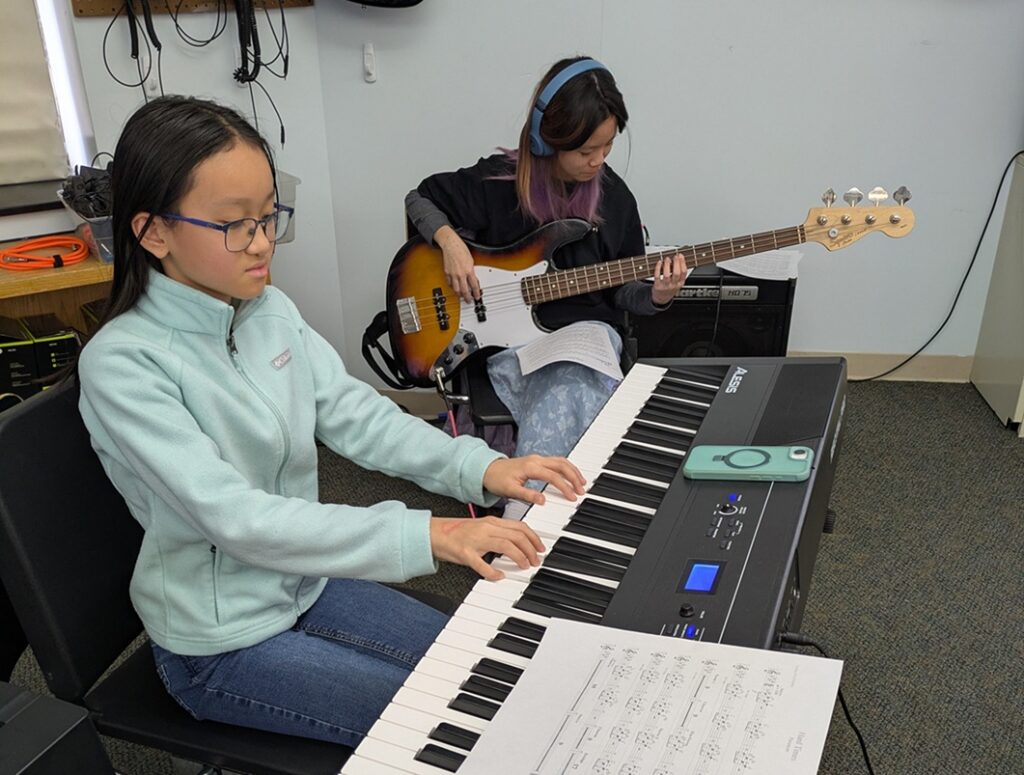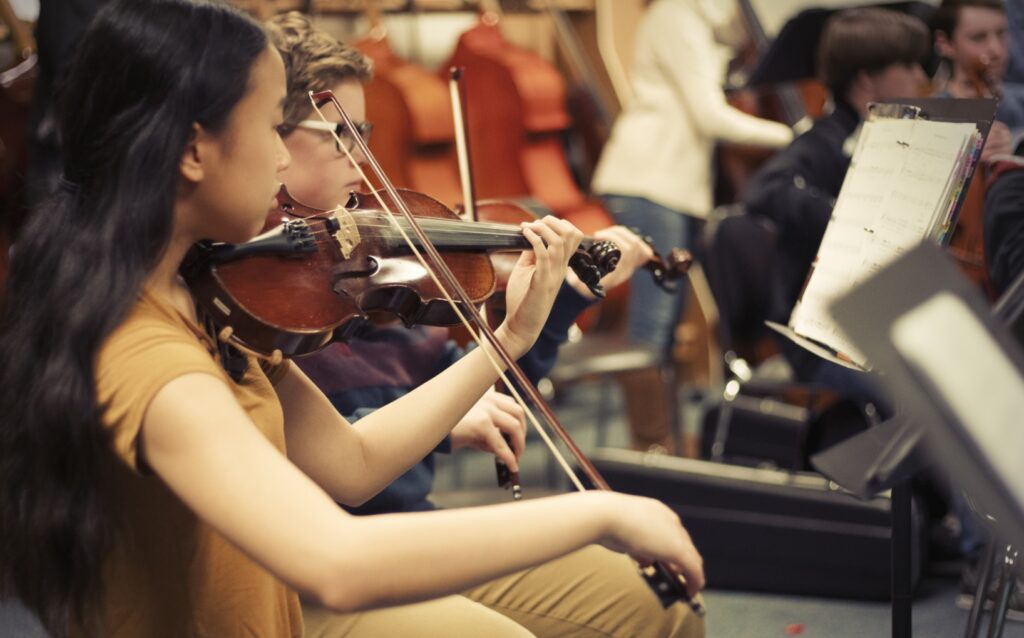Changing Jobs, Part 3: Questions to Ask Potential Employers
You’ll be asked a battery of questions during an interview, but remember that it’s essential for you to ask questions, too.
During an interview, you’ll be asked a battery of questions, but remember that it’s essential for you to ask the interview committee questions, too.
The primary reason is to find out information to help you determine whether the employer, school and program are a good fit for you. The secondary reason is that by asking meaningful questions, you will appear prepared and invested in the job that you have applied for.
Prepare 10 or so questions, and bring the printout to the interview. If you are interviewing with a panel of people, have more questions ready. Sometimes you will be told ahead of time who will be interviewing you, and other times, you won’t know until you walk into the interview room. I’ve interviewed for jobs with one person running the interview all the way up to a panel of 15 people
If you don’t have the information on the interview committee ahead of time, you can make some reasonable assumptions. I always have prepared questions directed toward administrators, teachers, parents and students. Furthermore, I have questions for music specialists and non-music specialists.
 Additional tips on questions for the interviewer:
Additional tips on questions for the interviewer:
- Only ask questions that you can’t find answers to on your own. For example, don’t waste a question asking about school enrollment because you can probably find this information online.
- Remember, you can ask a few additional questions over email after the interview. I have included a follow-up question or two in my “thank you” email that I send to each person on the interview panel.
- And if you are offered the position and accept it, you can ask even more questions to prepare for your new job.
I will assume that you are comfortable preparing questions related to music or your specific content, so many of the questions below are more general.
Questions for Students
Some interview committees include current students. I’ve seen too many interviewees tell the panel that they are student-centered, yet they never engage with the students sitting in front of them.
If there are students on a panel, I address them first. I want the committee to see how I interact with students. From a more realistic standpoint, schools don’t exist without students, so that’s where my primary focus goes.
Consider some of the following questions directed toward the current students:
- What are some of your favorite and the most important traditions in your music program?
- Besides being an effective rehearsal technician and conductor, what do you want from your director?
- Your current director is a great teacher and a great person, and I know he/she will be missed. What do you think the new director can do to ease the transition and help your music family continue to succeed?
- Do you have an example of a piece, lesson or experience in your music class that has really stuck with you?
- What input do you expect to have in your music program?
- You are the most consistent part of the music program. What do you think the new director/teacher needs to know when stepping into this program? How would you be able to help the new teacher? (This is an excellent question to direct toward a program that might have a revolving door of teachers/directors.)
Questions for Parents
Some interview committees include band/orchestra/choir parents. As with the students, make sure to engage with the parents. This is another opportunity for the administration or interview head to see you interact with key stakeholders. Consider directing some of the following questions toward the parents:
- What do you think this program means to your student?
- What do you think your student will remember most about this school and this program when he/she has graduated?
- What do you want from your child’s music teacher?
- What input do you expect to have in your music program?
- When talking to parents from other schools, what is the first thing you tell them about your music program?
- What do you see as the ideal relationship between director and parent organization for those involved in the parent booster organization?
Questions for Faculty Committee Members and Administration
Many of these questions could be used when speaking to either teachers or supervisors/administrators.
-

How does the administration measure the success of the department?
- What are the most critical skills and attributes you are looking for in filling this position?
- What are you looking for in a colleague?
- At my current position, we encourage the students to become successful musicians, not just music, choir or orchestra members. What opportunities exist for students to branch outside of their specific music, orchestra or choir world? Are these curricular or extracurricular?
- What do you think the new teacher needs to do in the first six months to make the most significant impact on students?
- Besides the goals outlined in the strategic plan, what life application skills and values do you expect students to achieve from the music department?
- How does the administration feel the music program should support the community?
Additional Questions
The questions listed below are part of a document I have when preparing for job interviews. I pick and choose from this list depending on the job I’m applying for. Some questions can quickly be answered by an online search or phone call to someone familiar with the program. Others may be good questions to ask during your interview. Use your best judgment to determine what fits best.
- Where has the emphasis of the program been?
- How does the student body feel about the music program?
- What are the conditions of the instruments, music library and uniforms?
- What are the rehearsal facilities like (indoor/outdoor)?
- Are rehearsals in the curriculum?
- What is the current performance schedule?
- Is there a booster organization in place?
- Would the administration like to see the booster organization be more or less active?
- How many students are involved with the music program?
- When do the beginners in the district start?
- What is your contact with the feeder schools?
- Where do you see the music program in 3 to 5 years?
- Is there a current budget for the music program? Can you share this information?
- Is there a budget in place for instrument repairs?
- Do you have a copy of the music library?
- What is the school and program’s philosophy on competitions and festivals?
- Is there a transportation budget for the program, and is the director in charge of it? Or is the district/building responsible for this?
- Do students participate in solo and ensemble events?
- Do students take private or group lessons? If not, would the district entertain a proposal for a private lesson program?
- Are music parents supportive of their children in all activities, not only music?
- Is there a summer program or music camp?
- If I were fortunate enough to land this position, when could I begin to prepare (regardless of contract)?
- Can new teachers serve on faculty committees? (I ask this on almost every interview, and the committee always gets excited about this. Only ask this if you are serious, as they will take you up on this offer).
- If you could advance one thing about the music program, what would it be?
- Is there a school newsletter/email in place for the parents? If so, Is the music program included in this paper regularly? If not, is it possible to create a music newsletter?
- Is there a mentoring program in place for teachers new to the district?
- Does the music program have a social media program manager in place?
- Has the district implemented any programs or procedures to help teachers support students in the area of social and emotional learning (SEL)?
- How has the district supported inclusivity and diversity in the fine arts?
- Why is the position open? Has there been consistency, or is there a revolving door? (Don’t ask this in the interview; instead, find this info out behind the scenes.)
 Some Other Thoughts
Some Other Thoughts
While your questions are being answered, listen actively and write down some notes. Some responses may need clarification. Be prepared to ask a follow-up question or restate and further explain the original question.
If you feel that a prepared question may come off as judgmental, trust your gut instinct and don’t ask it. Either rephrase it or move on to another question.
Some interview committees will tell you how many questions you can ask. Others will not. If you aren’t given a set number, look for non-verbal cues. If responses from the committee members become shorter or if you notice people looking at their watches or getting antsy, start wrapping up.
It’s impossible to get answers to everything during an interview. You are looking for a snapshot of whether this position is a good fit for you. Formulate and select your questions to give you the best chance of making this decision. I have turned down second interviews because the initial answers to my questions during the first round did not sit well with me.
What questions do you ask during interviews? Do you have other tips or recommendations on interviewing for a job? Email them to us at educators@yamaha.com.
Read the other articles in the Changing Jobs series — Part 1: Tips to Improve Your Resume, Part 2: Interviewing Tips and Part 4: Things No One Tells You About Switching Jobs.















